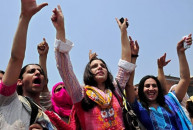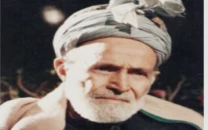SC reserves verdict in private schools fee case
CJP says institutions exaggerate expenditures to avoid paying taxes

SC reserves verdict in private schools fee case
A three-member bench, headed by Chief Justice of Pakistan Asif Saeed Khosa, heard the case.
CJP Khosa said the question is whether the 5% increase in annual fees could be banned?
“Apart from charging tuition fees, private schools adopt other methods to earn money,” remarked the CJP.
The counsel for private schools in his arguments said that in 2002, an 11-member bench of the Indian Supreme Court announced a verdict for a similar case according to which private schools were entitled to earn reasonable profits.
The CJP inquired whether the Indian government had presented any fee structure in that case.
The other member of the bench, Justice Ijazul Ahsan, said, “In what context were the Indian cases heard and whether regulation was done? We don’t know. On the basis of these cases, we could arrive at a wrong conclusion.”
Justice Ahsan said the basic question here was that how was imposing restriction on increase in fees unjustifiable.
Referring to the black law dictionary, the counsel said the law of Punjab does not talk about profit, instead imposes limit on revenue. The law of Punjab is entirely different from the law of Sindh.
Justice Ahsan said the word profitable was not used in the regulation.
“How is the 5% limit on the increase in school fee against the basic rights? The private schools insist that the limit should not be imposed. To evade taxes, private schools exaggerate their expenditures. Tax theft is a crime. The management of saving taxes is the responsibility of the lawyer. We are posed with a legal question.”
In his remarks, the CJP said the eligible age to become a president of the country was 45. “Why isn’t the age of 44 or 46 years set could also be questioned. Determining the age is the prerogative of the legislators. Similarly, it will be the prerogative of the legislators in restricting the increase in annual fee to not more than 5%,” remarked the CJP. “In Britain, even the fees taken by legal counsels are predetermined. The law society sets the fees for lawyers at different levels.”
The counsel said the reasons for imposing up to 5% restriction on annual increase in fees were not disclosed.
“The limit of 5% is against the basic rights,” he said, adding that such a limit would adversely affect the standard of education.
The chief justice inquired whether he (counsel) wanted to remove the restriction and give a free hand. “We also had a case of samosa prices,” the CJP said. “Is the court supposed to fix the price of samosas now?”
It should be seen that where the court can impose restriction, the CJP added.
Justice Ahsan inquired whether the court could advise legislators.
“In a democratic society, the discretion to set prices rests with the legislators,” Ahsan added.
During the session, the counsel for Head Start School presented an apology over a letter written against the fee control. The court accepted the apology and withdrew the contempt notice.
The CJP said people tend to emotional, but the court should not.
The Supreme Court forwarded the cases of Peshawar, Islamabad and Balochistan to their respective high courts. After completion of the arguments, the top court reserved its verdict in the school fees case.



















COMMENTS
Comments are moderated and generally will be posted if they are on-topic and not abusive.
For more information, please see our Comments FAQ